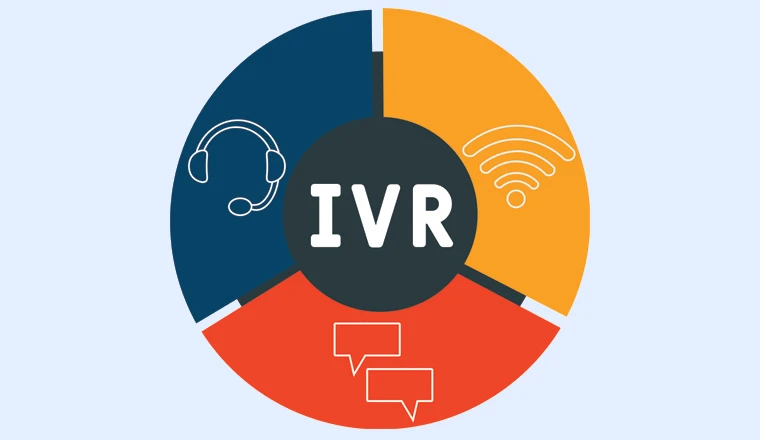Interactive Voice Response
This case study examines the solution we built for FreightSideKick and how they use IVR to improve their customer experience and streamline their operations.
TL;DR: Interactive Voice Response
Hyperfly develops custom IVR (Interactive Voice Response) systems that automate caller interactions and seamlessly integrate with SMS and other channels. Our case study with FreightSideKick demonstrates how our IVR solution eliminated hold times, reduced staffing needs, and improved operational efficiency by automatically providing shipment information to callers and transitioning them to text-based interactions. This multi-channel approach allows agents to handle multiple conversations simultaneously, leading to significant cost savings and improved customer satisfaction.

What is IVR?
Interactive Voice Response (IVR) is a technology that allows callers to interact with an automated voice system using touch-tone keypad or voice recognition. It is widely used in businesses and organizations for customer service, sales, support, and other purposes.
However, not all IVR systems are created equal. An effective IVR solution requires monitoring and analyzing the system's performance, and iterating to perfection (or as close as possible).
Company Background
FreightSideKick is a national provider of transportation and logistics services with customers across the country. They offer freight services through a network of trucking companies and assist shippers with finding spot-market capacity for LTL and truckload freight. With such a large customer and carrier base, the company faced challenges in managing inquiries and support requests efficiently.
Challenge
Companies like FreightSideKick receive thousands of calls every day from carriers, coordinating empty trucks with freight that is on the ground and ready to ship. When truckers call in, they need all kinds of information about the shipment in question, like product information, dimensions and weight, equipment that is required to carry the load, and so on. The dispatch team was struggling to handle the high volume of calls, leading to long wait times, frustrated truckers, and lost opportunities. The dispatch team required a solution to streamline inquiries, allowing them to manage more requests without juggling phone lines.
Solution
The ideal solution required an IVR system and a chat interface where agents could handle multiple bookings. The goal was to automatically provide callers with information about the shipment without having to wait for an available agent, and then facilitate a "hand-off", switching the caller to SMS, where they complete their booking via text.
Results
Implementing an IVR system and agent chat console solved all of the operations challenges they faced.
-
1. Improved caller satisfaction
No more waiting on hold for information that could be easily read directly from the database, which truckers calling in need in order to make important, last-minute decisions concerning their next job.
-
2. Reduced Call Volume
Because 90% of the information a caller needed was available to them on demand, agents were freed up from having to juggle phone calls and fulfilling requests one at a time.
-
3. Increased Efficiency
By having the IVR system "hand off" the caller to SMS-based booking, agents not only eliminated having to handle phone calls, but can now handle multiple conversations with less effort.
-
4. Cost Savings
By eliminating most inbound calls, fewer agents were needed and the company was able to meet increasing demand while reducing their dispatch staffing needs.
Conclusion
The implementation of an IVR system helped FreightSideKick to improve their caller experience, reduce call volumes, increase efficiency, save costs, and operate under less stress. The success of the IVR system demonstrates how businesses can leverage technology to improve their operations and meet the needs of their customers.
Frequently Asked Questions
Interactive Voice Response (IVR) is a technology that allows callers to interact with a computer-operated phone system through voice commands or touch-tone keypad selections. An IVR system can:
- Automatically provide information to callers without human intervention
- Route calls to the appropriate department or agent
- Collect data from callers for processing or future use
- Handle simple transactions like appointment scheduling or order status checks
- Integrate with databases to provide real-time information
Modern IVR systems use advanced voice recognition and natural language processing to create more natural and efficient caller experiences.
IVR systems offer numerous benefits for businesses of all sizes:
- Reduced operational costs: Automating routine inquiries means fewer staff are needed to handle calls
- Improved efficiency: Calls are routed to the right department or handled automatically
- 24/7 availability: Provide information and services to callers even outside business hours
- Scalability: Handle fluctuating call volumes without increasing staff
- Enhanced customer experience: Callers get immediate responses without waiting on hold
- Data collection: Gather valuable information from callers for analytics and improvement
- Multi-channel integration: Connect phone systems with SMS, email, and other communication channels
As demonstrated in our FreightSideKick case study, an effective IVR solution can dramatically improve operational efficiency while enhancing caller satisfaction.
At Hyperfly, our approach to IVR development focuses on creating systems that truly enhance the caller experience while delivering measurable business benefits:
- Business-focused design: We start by understanding your specific operational challenges and goals
- User-centric approach: We design intuitive call flows that minimize frustration and maximize efficiency
- Integration expertise: We seamlessly connect IVR systems with your existing databases and business systems
- Multi-channel capabilities: Our solutions can transition callers between voice, SMS, email, and web interfaces
- Continuous improvement: We implement analytics and monitoring to refine the system based on real-world usage
- Custom development: Each solution is built specifically for your business needs, not a one-size-fits-all approach
Our case studies, like FreightSideKick, demonstrate how our tailored IVR solutions deliver substantial ROI through operational improvements and enhanced customer satisfaction.

